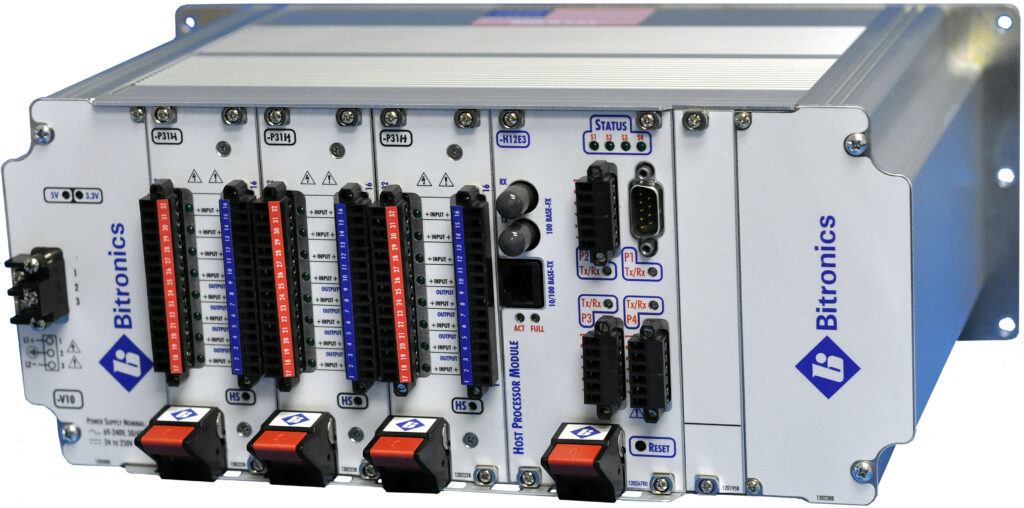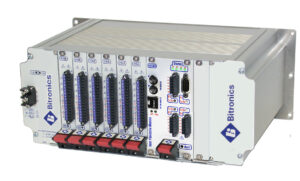
70 Series Product Update
PUBLISHED ON Jan 14, 2013
New Host Module for M87x Family Released
A new host processor, the H12, was released effective January 2, 2013 and is shipping in place of the H11 module in new orders for M87x. The base version will be equipped with 256MB flash memory, and options for 512MB and 1GB are available. There are options to add Ethernet built into the module as either E1 (RJ45 10BaseT/100BaseTX), or E3, (RJ45 10BaseT/100BaseTX plus 100BaseFX ST fiber). These replace the separate P10 and P12 Ethernet modules used with the previous H11 host module. A new IEC 61850 stack is included in the accompanying firmware release, and this new host processor makes it easier to add additional upgrades in the future.
Release of the 878 Distributed I/O Device (DIOD)

Offering self-powered, distributed I/O for substation equipment monitoring and fast automation and control applications in conjunction with the OrionLX, the 878 DIOD provides combinations of digital inputs, digital outputs and transducer inputs with all I/O accessible via IEC 61850 or DNP3 protocols.
In the largest of three available chassis, a maximum of 56 digital inputs, 24 digital outputs, or 48 transducer inputs are supported in the serial-only version (48 digital inputs, 20 digital outputs or 40 transducer outputs with Ethernet). The digital inputs are fully isolated from each other, and are jumper selectable for input level and threshold (150V dc input/15V dc threshold or 300V dc input/70V dc threshold). The digital outputs employ protection and control industry standard-type output relays and circuitry to ensure system reliability and are jumper selectable for desired output state (normally open or closed) and for relay state (energized or de-energized). The transducer inputs are available in eight-input modules that are jumper selectable for 0–10V dc, 0-1mA, or 4-20mA ranges. On-board Boolean logic can simplify schemes requiring control at protection speeds. The 878 complements the Orion DDIO and DCIO in applications requiring either IEC 61850 or higher density of I/O.